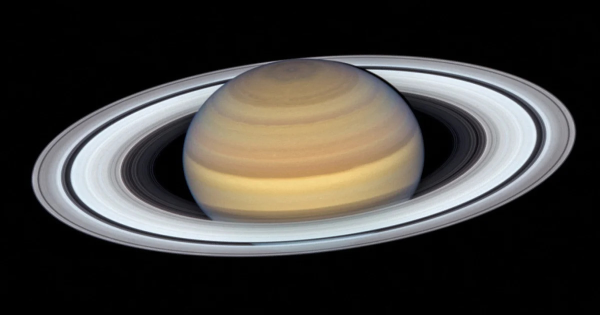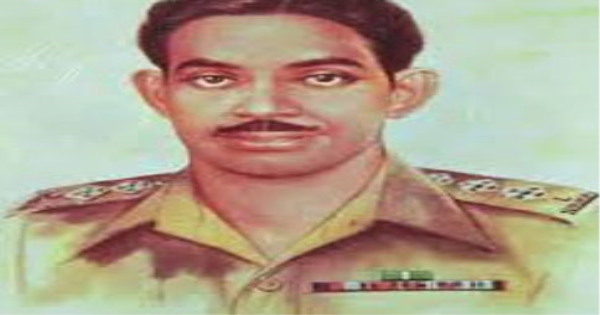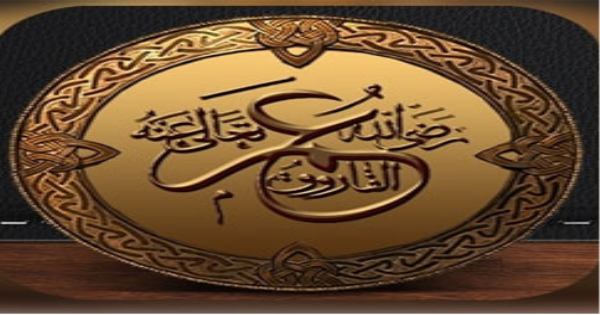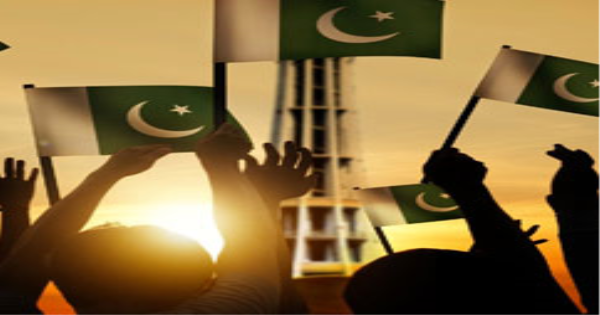Today Pakistani Nation is observing the 64th death anniversary of Great Quaid Muhammad Ali Jinnah, founder of Pakistan. When I open news websites and read different so-called political leaders views about Quaid and what was the vision of our great Quaid for the Pakistan. So I decided to write something on it.
Quaid was very much worried about the fate of Muslims under the Indian role after British. He was very much confirmed that Muslims and Hindus never live together in future. So he decided to get a separate homeland for Muslims. He has a very clear and concrete vision about Pakistan.
In an interview to American press in July 1942, when asked by a journalist whether the Muslims were a nation or not, Quaid-e-Azam replied, "We are a nation with our own individual culture and civilization, language and literature, art and architecture, names and nomenclature, sense of values and proportion, legal laws and norms, customs and calendar, history and traditions, aptitudes and ambitions, in short, we have our own unique outlook on life and of life. By all cannons of international law we are a nation".
A conflict has aroused in Pakistan about whether Jinnah wanted Pakistan to be a secular state or an Islamic state. His views as expressed in his policy speech on August 11, 1947 said:
 “There is no other solution. Now what shall we do? Now, if we want to make this great State of Pakistan happy and prosperous, we should entirely and solely concentrate on the well-being of the people, and especially of the masses and the poor. If you will work in co-operation, forgetting the past, burying the hatchet, you are bound to succeed. If you change your past and work together in a spirit that everyone of you, no matter to what community he belongs, no matter what relations he had with you in the past, no matter what is his colour, caste or creed, is first, second and last a citizen of this State with equal rights, privileges, and obligations, there will be no end to the progress you will make. I cannot emphasize it too much. We should begin to work in that spirit and in course of time all these angularities of the majority and minority communities, the Hindu community and the Muslim community, because even as regards Muslims you have Pathans, Punjabis, Shias, Sunnis and so on, and among the Hindus you have Brahmins, Vashnavas, Khatris, also Bengalis, Madrasis and so on, will vanish. Indeed if you ask me, this has been the biggest hindrance in the way of India to attain the freedom and independence and but for this we would have been free people long ago. No power can hold another nation and specially a nation of 400 million souls in subjection; nobody could have conquered you, and even if it had happened, nobody could have continued its hold on you for any length of time, but for this. Therefore, we must learn a lesson from this. You are free; you are free to go to your temples, you are free to go to your mosques or to any other place or worship in this State of Pakistan. You may belong to any religion or caste or creed that has nothing to do with the business of the State. As you know, history shows that in England, conditions, some time ago, were much worse than those prevailing in India today. The Roman Catholics and the Protestants persecuted each other. Even now there are some States in existence where there are discriminations made and bars imposed against a particular class. Thank God, we are not starting in those days. We are starting in the days where there is no discrimination, no distinction between one community and another, no discrimination between one caste or creed and another. We are starting with this fundamental principle that we are all citizens and equal citizens of one State. The people of England in course of time had to face the realities of the situation and had to discharge the responsibilities and burdens placed upon them by the government of their country and they went through that fire step by step. Today, you might say with justice that Roman Catholics and Protestants do not exist; what exists now is that every man is a citizen, an equal citizen of Great Britain and they are all members of the Nation. Now I think we should keep that in front of us as our ideal and you will find that in course of time Hindus would cease to be Hindus and Muslims would cease to be Muslims, not in the religious sense, because that is the personal faith of each individual, but in the political sense as citizens of the State".
“There is no other solution. Now what shall we do? Now, if we want to make this great State of Pakistan happy and prosperous, we should entirely and solely concentrate on the well-being of the people, and especially of the masses and the poor. If you will work in co-operation, forgetting the past, burying the hatchet, you are bound to succeed. If you change your past and work together in a spirit that everyone of you, no matter to what community he belongs, no matter what relations he had with you in the past, no matter what is his colour, caste or creed, is first, second and last a citizen of this State with equal rights, privileges, and obligations, there will be no end to the progress you will make. I cannot emphasize it too much. We should begin to work in that spirit and in course of time all these angularities of the majority and minority communities, the Hindu community and the Muslim community, because even as regards Muslims you have Pathans, Punjabis, Shias, Sunnis and so on, and among the Hindus you have Brahmins, Vashnavas, Khatris, also Bengalis, Madrasis and so on, will vanish. Indeed if you ask me, this has been the biggest hindrance in the way of India to attain the freedom and independence and but for this we would have been free people long ago. No power can hold another nation and specially a nation of 400 million souls in subjection; nobody could have conquered you, and even if it had happened, nobody could have continued its hold on you for any length of time, but for this. Therefore, we must learn a lesson from this. You are free; you are free to go to your temples, you are free to go to your mosques or to any other place or worship in this State of Pakistan. You may belong to any religion or caste or creed that has nothing to do with the business of the State. As you know, history shows that in England, conditions, some time ago, were much worse than those prevailing in India today. The Roman Catholics and the Protestants persecuted each other. Even now there are some States in existence where there are discriminations made and bars imposed against a particular class. Thank God, we are not starting in those days. We are starting in the days where there is no discrimination, no distinction between one community and another, no discrimination between one caste or creed and another. We are starting with this fundamental principle that we are all citizens and equal citizens of one State. The people of England in course of time had to face the realities of the situation and had to discharge the responsibilities and burdens placed upon them by the government of their country and they went through that fire step by step. Today, you might say with justice that Roman Catholics and Protestants do not exist; what exists now is that every man is a citizen, an equal citizen of Great Britain and they are all members of the Nation. Now I think we should keep that in front of us as our ideal and you will find that in course of time Hindus would cease to be Hindus and Muslims would cease to be Muslims, not in the religious sense, because that is the personal faith of each individual, but in the political sense as citizens of the State".
While this may seem to be an indication that Jinnah wanted a secular state, he also referred to Islam and Islamic principles in February 1948:
"The constitution of Pakistan has yet to be framed by the Pakistan Constituent Assembly. I do not know what the ultimate shape of this constitution is going to be, but I am sure that it will be of a democratic type, embodying the essential principle of Islam. Today, they are as applicable in actual life as they were 1,300 years ago. Islam and its idealism have taught us democracy. It has taught equality of man, justice and fair play to everybody. We are the inheritors of these glorious traditions and are fully alive to our responsibilities and obligations as framers of the future constitution of Pakistan. In any case Pakistan is not going to be a theocratic State to be ruled by priests with a divine mission. We have many non-Muslims — Hindus, Christians, and Parsis — but they are all Pakistanis. They will enjoy the same rights and privileges as any other citizens and will play their rightful part in the affairs of Pakistan”.
It has been argued by many people that in this speech Jinnah wanted to point out that Pakistan would be a secular state as mostly people think that an Islamic state is a theocratic state. This perception, however, is wrong and is misinterpreted; the reason is that a true Islamic state is not a theocratic state, as stated by Jinnah in his speech.
On the opening ceremony of the state bank of Pakistan Jinnah pointed out that the financial setup of the state should be based on Islamic economic system.
In 1948 in the opening ceremony of State Bank of Pakistan he said that we must work our destiny in our own way and present to the world an economic system based on true Islamic concept of equality of manhood and social justice. We will thereby be fulfilling our mission as Muslims and giving to humanity the message of peace which alone can save it and secure the welfare, happiness and prosperity of mankind.
It appears that Jinnah felt the state of Pakistan should stand upon Islamic tradition in culture, civilization and national identity rather than on the principles of Islam as a theocratic state.
In 1937, Jinnah further defended his ideology of equality in his speech to the All-India Muslim League in Lucknow where he stated, "Settlement can only be achieved between equals." He also had a negation to Nehru's statement which argued that the only two parties that mattered in India were the British Raj and Indian National Congress (INC). Jinnah stated that the Muslim League was the third and "equal partner" within Indian politics.
Quaid has a very clear idea and vision about the Pakistan and he never want to see Pakistan a secular country. Many people argued that great Quaid was a secular which is not true. Here I would like to quote only one example which is necessary to clear that he wasn’t a secular. He once said that I am working for Muslims because I want that when I meet Allah hereafter death He would say “Well done Mr. Jinnah”.
On August 6, 1939, Quaid said: “I was born Muslim; I am a Muslim and shall die a Muslim.” At another time he said: “I am no Maulana or a Maulvi but I also know a little of my faith.” Muhammad Ali Jinnah was brought up in a Muslim family, adhered to the tenants of Islam, was repeatedly elected to the Indian Council/Legislative Assembly on a seat reserved for a Muslim, succeeded in getting a number of bills concerning the Muslims passed from the Legislative Assembly, advocated Hindu-Muslim unity, always stressed for safeguards for the Muslims including their demand for a federal form of government as envisaged by the Nehru Report. In his negotiations with the government and parlays with the Indian Congress, he always stoutly advocated the Muslim cause.
 Quaid-i-Azam’s vision of Pakistan is very clear: he wanted Pakistan to be modern, progressive, dynamic, forward looking and a democratic country with equal rights for all its citizens irrespective of their casts, creed or religion.
Quaid-i-Azam’s vision of Pakistan is very clear: he wanted Pakistan to be modern, progressive, dynamic, forward looking and a democratic country with equal rights for all its citizens irrespective of their casts, creed or religion.
In August 1941, Quaid-e-Azam gave an interview to the students of the Osmania University. While giving the answer of "What are the essential features of religion and a religious state?" Quaid said, when I hear the word “religion,” my mind thinks at once, according to the English language and British usage, of private relations between man and God. But I know full well that according to Islam, the word is not restricted to the English connotation. I am neither a Maulwi nor a Mullah, nor do I claim knowledge of theology. But I have studied in my own way the Holy Quran and Islamic tenets. This magnificent book is full of guidance respecting all human life, whether spiritual, or economic, political or social, leaving no aspect untouched”.
Quaid-e-Azam further said while describing the distinctive feature of the Islamic state that “there is a special feature of the Islamic state which must not be overlooked. There, obedience is due to God and God alone, which takes practical shape in the observance of the Quranic principles and commands. In Islam, obedience is due neither to a king, nor to a parliament, nor to any other organization. It is the Quranic provisions which determine the limits of our freedom and restrictions in political and social spheres. In other words, the Isla
mic state is an agency for enforcement of the Quranic principles and injunctions".
There will be no economic exploitation by the capitalists in an Islamic state. In his presidential address delivered to the annual session of the All India Muslim League, in Delhi on April 24, 1943, he said:
“Here I should like to give a warning to the landlords and capitalists who have flourished at our expense by a system which is so vicious, which is so wicked and which makes them so selfish that it is difficult to reason with them. The exploitation of the masses has gone into their blood. They have forgotten the lessons of Islam. Greed and selfishness have made these people subordinate to the interests of others in order to fatten themselves. It is true we are not in power today. You go anywhere to the countryside. I have visited villages. There are millions and millions of our people who hardly get one meal a day. Is this civilization? Is this the aim of Pakistan? Do you visualize that millions have been exploited and cannot get one meal a day? If this is the idea of Pakistan, I would not have it. If they are wise, they will have to adjust themselves to the new modern conditions of life. If they don’t, God help them, we shall not help them.”
In light of the above, we can see that Quaid-e-Azam was neither for Western-style democracy nor for Mulla-style theocracy. He essentially advocated what may be called Islamic social democracy. But tell this to secularists or to Islamists. They would never believe it. No wonder truth is stranger than fiction.











































